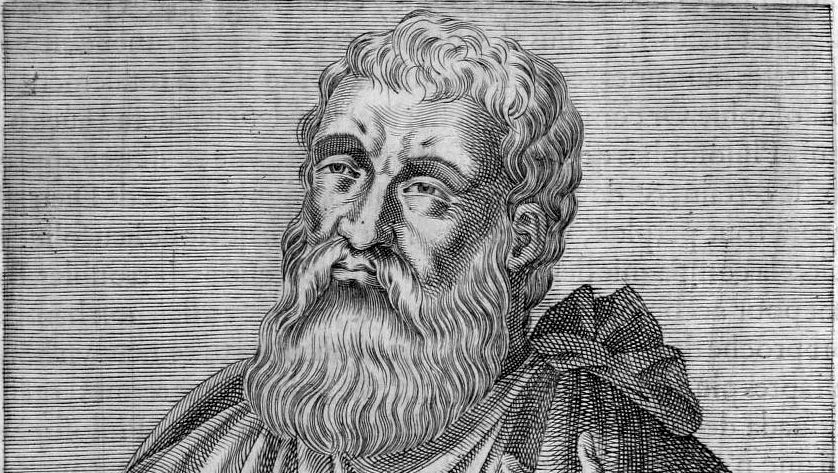St. Justin was born around the year 100, in the Palestinian province of Samaria. His parents followed the Greek pagan religion, and raised Justin to do the same, but Justin’s father also provided him with an excellent education in literature and history.
Justin was an avid lover of truth. As a young man, he studied philosophy, searching for truth in various popular schools of thought. But he became frustrated with the professional philosophers’ intellectual conceits and limitations, and their indifference to God.
After studying for several years, Justin had a life-changing encounter with an old man, who questioned his beliefs, especially the idea of studying philosophy as a means of obtaining truth. The man urged Justin to study the Jewish prophets, and told him that the authors had not only received God’s inspiration, but also predicted the coming of Christ and the foundation of the Church.
Justin had always admired Christians from a distance for the beauty of their moral lives. He wrote in his Apologies: “When I was a disciple of Plato, hearing the accusations made against the Christians and seeing them intrepid in the face of death and of all that men fear, I said to myself that it was impossible that they should be living in evil and in the love of pleasure.”
Justin was baptized around the age of 30. After his conversion, he continued to wear the cloak associated with philosophers in Greek culture. Inspired by the example of Christian martyrs, he began living a simple, austere lifestyle. He was likely ordained a deacon, because he preached, did not marry, and gave religious instruction in his home.
Justin is best known as the author of early apologetic works that argued for the Catholic faith against claims from the Jews, pagans, and non-Christian philosophers. Several of the works were directed to Roman officials, to refute lies told about the Church. His two most famous works are “Apologies” and “Dialogues with Tryphon.”
These works provide explicit descriptions of the early Church’s beliefs and modes of worship. Scholars have noted that Justin’s descriptions correspond to Church tradition on every essential point.
Around the year 150, Justin wrote his first defense of the faith, to Emperor Antonius Pius, convincing him to regard the Church with tolerance. In 167, however, Emperor Marcus Aurelius began persecuting Christians.
Justin wrote to Marcus Aurelius, trying to demonstrate the injustice of the persecutions and the superiority of the Catholic faith over Greek philosophy. Justin emphasized the strength of his convictions, stating that he expected to be put to death for expressing them.
Justin was seized with a group of believers, and brought before Rusticus, prefect of Rome. The prefect made it clear that Justin’s life would be spared, telling him, “Obey the gods, and comply with the edicts of the emperors.” Justin responded that “no one can be justly blamed or condemned for obeying the commands of our Savior Jesus Christ.”
Rusticus then questioned Justin and his companions about their belief in Christ and their manner of worship. “Hear me,” he said, “you who are noted for your eloquence, who think that you make a profession of the right philosophy. If I cause you to be scourged from head to foot, do you think you shall go to heaven?”
“If I suffer what you mention,” Justin replied, “I hope to receive the reward which those have already received, who have obeyed the precepts of Jesus Christ.
“There is nothing which we more earnestly desire, than to endure torments for the sake of our Lord Jesus Christ,” he explained. “We are Christians, and will never sacrifice to idols.”
Justin was scourged and beheaded, along with six companions who joined him in his confession of faith.

